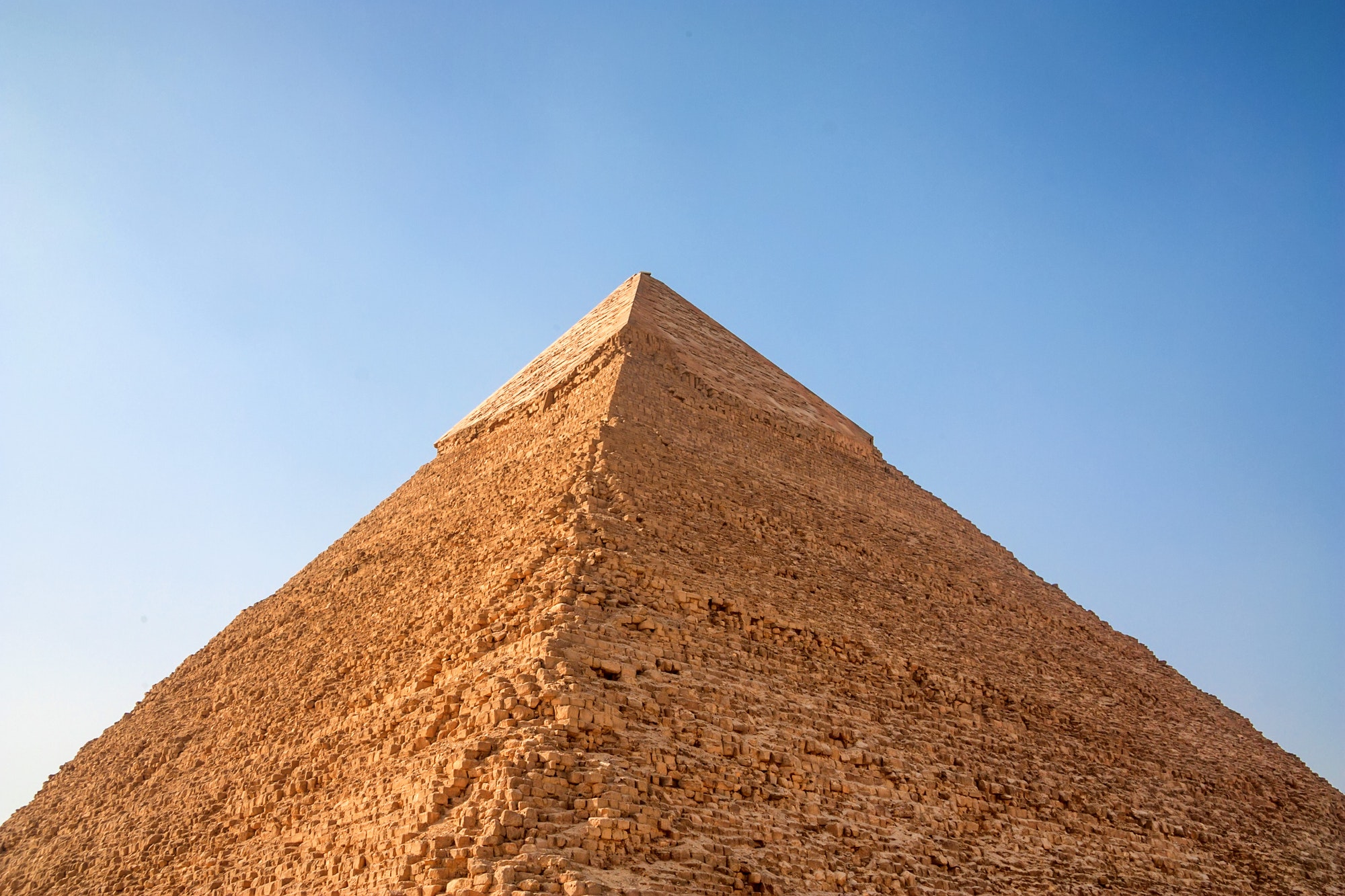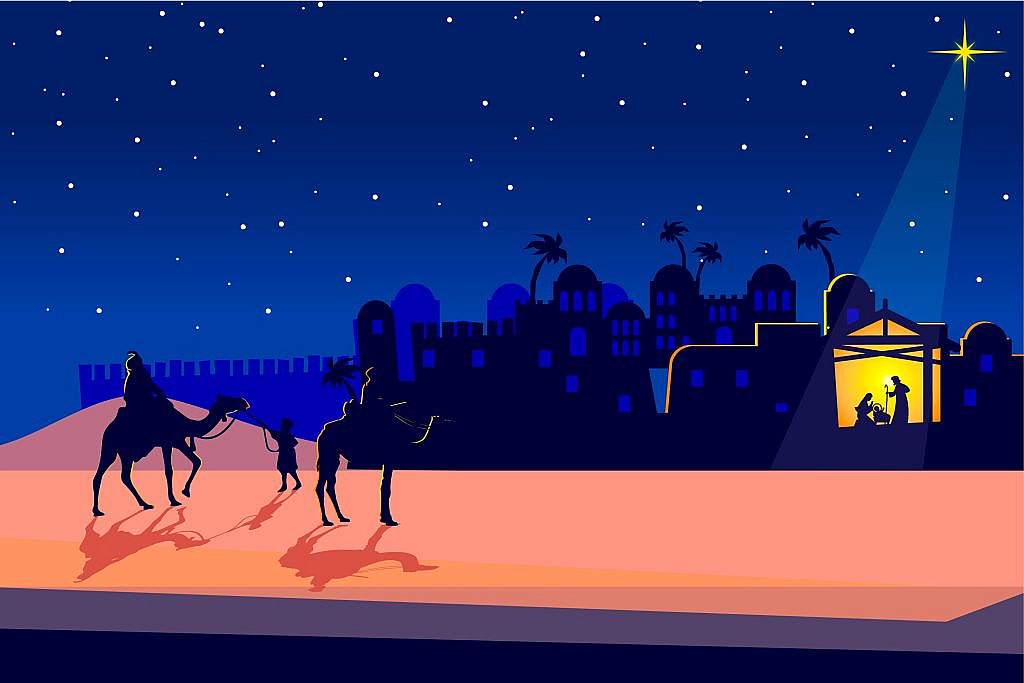God is a master communicator – the creater of both verbal/literal communication as well as symbols. In Scriptures, we see often how God’s people are instructed to make use of symbols to help them understand or remember what God is teaching them. Some examples of symbols include:
- The rainbow is the sign of God’s covenant to us that He will never again destroy the earth by a flood (Genesis 9:13),
- The placement of the twelve stones in the River Jordan to remind the Israelites of the crossing God had provided for them “as a sign” and “memorial” (Joshua 4:3-7),
- The star of Bethlehem to signify the birth of Christ (Matthew 2:2),
- The dove to signify the Spirit’s presence at Jesus’ baptism (John 1:32),
- Water to signify one’s commitment to Christ at baptism (Romans 6:4),
- Bread and wine to signify Jesus’ body and blood (1 Corinthians 11:23-26),
- The symbol of a lamb to represent Jesus Christ (John 1:29).
Today, we continue to communicate important moments of significance such as wedding rings to represent the union between a man and a woman, birthday cakes to represent the day a person was born, red roses to represent love. All these are used today as a natural way of communicating significant meaning.
In that same way, God uses symbolism to pack so much information in a dream. When someone shares their dream, it can take, for instance 5 minutes to talk about it but on interpretation, it is a direction that would take a decade to implement. A good example is Pharaoh’s dream as interpreted by Joseph, the dreamer.
The Seven Cows - Pharaoh's Dream
After two years had passed, the king of Egypt dreamed that he was standing by the Nile River, 2 when seven cows, fat and sleek, came up out of the river and began to feed on the grass. 3 Then seven other cows came up; they were thin and bony. They came and stood by the other cows on the riverbank, 4 and the thin cows ate up the fat cows. Then the king woke up. 5 He fell asleep again and had another dream. Seven heads of grain, full and ripe, were growing on one stalk. 6 Then seven other heads of grain sprouted, thin and scorched by the desert wind, 7 and the thin heads of grain swallowed the full ones. The king woke up and realized that he had been dreaming. Genesis 41:1-7
The dream above is just one paragraph of 134 words (GNT Bible Version) and would take less than two minutes to speak it out. However, this paragraph is packed with great instructions and wisdom to save nations from hunger and death for years.
The symbolism:
- Seven thin cows eating seven fat cows
- Seven thin and scorched heads of grains eating seven full and ripe heads of grains.
It is very easy to miss the magnitude of such a brief symbolic dream. But by the design and grace of God, Pharaoh did not. He called for an interpretation of the two dreams. At the time, the Egyptian Empire and its Pharaoh’s relied on magicians to settle their spiritual needs. So he called for them and they were unable to interprete it.
We know that God was preparing a path for Joseph to be a governor in order to fulfill the dream he had when he was a teenager at his father’s house.
In addition, that fulfillment was inline with God’s bigger picture to fulfill His promise to Abraham that his descendants would get enslaved in Egypt for 400 years and God would rescue them and give them the land promised to Abraham, Canaan.
Therefore, Joseph is called before Pharaoh to interprete the dream.
The Significance of Joseph's Interpretation of Pharaoh's Dream
14 The king sent for Joseph, and he was immediately brought from the prison. After he had shaved and changed his clothes, he came into the king's presence. 15 The king said to him, “I have had a dream, and no one can explain it. I have been told that you can interpret dreams.”
16 Joseph answered, “I cannot, Your Majesty, but God will give a favorable interpretation.”
25 Joseph said to the king, “The two dreams mean the same thing; God has told you what he is going to do. 26 The seven fat cows are seven years, and the seven full heads of grain are also seven years; they have the same meaning. 27 The seven thin cows which came up later and the seven thin heads of grain scorched by the desert wind are seven years of famine. 28 It is just as I told you—God has shown you what he is going to do. 29 There will be seven years of great plenty in all the land of Egypt. 30 After that, there will be seven years of famine, and all the good years will be forgotten, because the famine will ruin the country. 31 The time of plenty will be entirely forgotten, because the famine which follows will be so terrible. 32 The repetition of your dream means that the matter is fixed by God and that he will make it happen in the near future.
33 “Now you should choose some man with wisdom and insight and put him in charge of the country. 34 You must also appoint other officials and take a fifth of the crops during the seven years of plenty. 35 Order them to collect all the food during the good years that are coming, and give them authority to store up grain in the cities and guard it. 36 The food will be a reserve supply for the country during the seven years of famine which are going to come on Egypt. In this way the people will not starve.” Genesis 41:14-16, 25-36
- An Empire’s Economic Strategic Plan
We see that from a two minute-dream, God gives a forteen year’s straegic plan for Egypt. There was an upcoming seven year period of plenty, where Egypt should save food and not waste it. This would help them survive through the next period, seven years of famine.
If Egypt missed on this instruction, they would have lived a normal life in plenty for seven years and then the people would have died during the seven years of famine. By the simple symbol of seven thin cows eating seven fat cows, Egypt and the entire region were preserved.
2. The Fulfillment of God’s Promise to Abraham
In Genesis 12:1-2, God tells Abraham to leave his country Ur of Chaldeans to go to a land he would show him. He also promises to will give him many descendants that would become a great nation. And finally, He promises to bless him and make his name famous, so that he will be a blessing to many nations.
As a continuation to this promise, God tells Abraham about how these descendants will first go to Egypt, become slaves and then God will rescue them.
13 The Lord said to him, “Your descendants will be strangers in a foreign land; they will be slaves there and will be treated cruelly for four hundred years. 14 But I will punish the nation that enslaves them, and when they leave that foreign land, they will take great wealth with them. 15 You yourself will live to a ripe old age, die in peace, and be buried. 16 It will be four generations before your descendants come back here, because I will not drive out the Amorites until they become so wicked that they must be punished.”
17 When the sun had set and it was dark, a smoking fire pot and a flaming torch suddenly appeared and passed between the pieces of the animals. 18 Then and there the Lord made a covenant with Abram. He said, “I promise to give your descendants all this land from the border of Egypt to the Euphrates River, 19 including the lands of the Kenites, the Kenizzites, the Kadmonites, 20 the Hittites, the Perizzites, the Rephaim, 21 the Amorites, the Canaanites, the Girgashites, and the Jebusites.” Genesis 15:13-21
The promise is from God to Abraham to give him and his descendants the land of Canaan. But first, they will be slaves in Egypt for 400 years. When the seven years of famine came, the hunger was so much for Jacob and his sons that they went to Egypt to buy food. Because Joseph was already a governor, he asked his family to go to Egypt and live there with him as shepherds in Goshen area.
(i) God fulfills Joseph’s two dreams; first the sun, the moon and 11 stars bowing to him and 11 bundles of grains bowing to his bundle of grain. When the family came to him in Egypt, they bowed to him in his governor’s position which was second to Pharaoh’s.
(ii) God fulfilled His promise to Abraham. Jacob went to Egypt with his family of his 11 sons and their sons – 66 men in total (excluding the count of their wives). They lived happily in Egypt for 30 years. In Exodus 1:6-7 we see that Joseph died, and all his brothers and all that generation, but the Israelites were prolific and increased greatly; they multiplied and became extremely strong, so that the land was filled with them.
8 Then, a new king, who knew nothing about Joseph, came to power in Egypt. 9 He said to his people, “These Israelites are so numerous and strong that they are a threat to us. 10 In case of war they might join our enemies in order to fight against us, and might escape from[b] the country. We must find some way to keep them from becoming even more numerous.” 11 So the Egyptians put slave drivers over them to crush their spirits with hard labor. The Israelites built the cities of Pithom and Rameses to serve as supply centers for the king. 12 But the more the Egyptians oppressed the Israelites, the more they increased in number and the farther they spread through the land. The Egyptians came to fear the Israelites 13-14 and made their lives miserable by forcing them into cruel slavery. They made them work on their building projects and in their fields, and they had no pity on them. Exodus 1:8-14
40 Now the period of time the children of Israel lived in Egypt was four hundred and thirty years. 41 At the end of the four hundred and thirty years, to that very day, all the hosts of the Lord [gathered into tribal armies] left the land of Egypt. Exodus 12:40-41
The Israelites lived as free people in Egypt for 30 years when Joseph was a governor. And 400 years as slaves just as God had promised Abraham when he called him out of Ur of Chaldeans 645 years earlier (ie between the call and Jacob’s entry to Egypt were 215 years).
Pharaoh’s symbolic dream and Joseph’s interpretation were all aligned to fulfill God’s covenant with Abraham. He got Israel out by His mighty hand (Exodus 20:2)
3. The Fulfillment of an Even Bigger Grand Plan and Promise – Jesus Christ
In the beginning, God placed Adam and Eve in the Garden of Eden to care for it. He desired to have fellowship with them but they fell by disobeying God by eating fruit from the tree of knowledge and truth. God rendered punishment to the man, the woman and the serpent that deceived them. He then casts them out of the Garden but makes a remedy promise to them and their offsprings to come.
Speaking to the serpent, in Genesis 3:15 God said,
I will make you and the woman hate each other; her offspring and yours will always be enemies. Her offspring will crush your head, and you will bite her offspring's[ heel.”
As Israel got out of Egypt, they wandered in the wilderness for 40 years but eventually occupied the land of Canaan as God had promised Abraham. It took them 16 years of fighting to settle down.
And David became King over all Israel in 1003 (this is about 403 years later from when Joshua took over from Moses and started marching to take over Canaan).
David is important in God’s plan to have the woman’s seed crush the serpent’s head.
And it shall be in the last days,’ says God, ‘that I will pour out my spirit upon all mankind; And your sons and your daughters shall prophesy, and your young men shall see [divinely prompted] visions, and your old men shall dream [divinely prompted] dreams; even on my bond-servants, both men and women, I will in those days pour out my spirit and they shall prophesy. Acts 2:17 quoting from Joel 2:28 He said, “Listen to my words: “When there is a prophet among you, I, the LORD, reveal myself to them in visions, I speak to them in […]
Why are some dreams literal, while most are symbolic? Some people, like creatives, visionaries—really right-brained people—have more literal dreams. But for 95 percent of us, our dreams are usually symbolic, speaking to us in a figurative language we need to learn to understand. Symbolic language does not make the dream any less valid or true. Example: Joseph’s dreams Though the meaning was veiled in figurative expressions, it was a true message to Joseph from God. First Dream: Genesis 35:5-8 One time Joseph had a dream. When he told his brothers about it, they hated him even more. Joseph said, “Listen to the […]
Relying on God’s Guidance Helps us Prepare for the Future But when the Spirit of truth comes he will lead you into all truth. He will not speak his own words. He will speak only what he hears and will tell you what is to come. John 16:13ICB Throughout his life, God blessed Joseph with the ability to interpret dreams. While in jail, Joseph performed this act for servants in Pharaoh’s home, one of whom was pardoned and returned to serve the Egyptian leader. Later, Pharaoh had a confusing dream, and his servant told him to summon Joseph. Joseph […]
God is a master communicator – the creater of both verbal/literal communication as well as symbols. In Scriptures, we see often how God’s people are instructed to make use of symbols to help them understand or remember what God is teaching them. Some examples of symbols include: The rainbow is the sign of God’s covenant to us that He will never again destroy the earth by a flood (Genesis 9:13), The placement of the twelve stones in the River Jordan to remind the Israelites of the crossing God had provided for them “as a sign” and “memorial” (Joshua 4:3-7), The […]
Dreams are an important part of many Biblical stories and passages because they offer insight and foresight into decisions and actions humanity need to do at each specific time. God promised to pour out His Spirit in the last days. Dreaming of dreams is one of the benefits promised when the Spirit of God is poured on all men. We look at all the dreamers in the Old Teestament to better and further understand the importance of dreams. How Many Symbolic Dreamers Are in the Old Testament? Jacob’s Ladder Dream – Genesis 28 After Jacob tricked Esau out of his […]
And it happened at the time when the flock conceived that I looked up and saw in a dream that the rams which mated [with the female goats] were streaked, speckled, and spotted. 11 And the b]”>[b]Angel of God said to me in the dream, ‘Jacob.’ And I said, ‘Here I am.’ 12 He said, ‘Look up and see, all the rams which are mating [with the flock] are streaked, speckled, and spotted; for I have seen all that Laban has been doing to you. 13 I am the God of Bethel, where you anointed the pillar, and where you made a vow to Me; now stand […]
Long before Israel settled between the Mediterranean and the Jordan River, their ancestor Abraham sojourned throughout the territory with his wife Sarah. Abraham was wealthy and often made other nations feel threatened. Whenever Abraham moved to or was passing by a new city, the leadership of that city took note. The culture of the time was that if a powerful king liked a woman, even if she was married, he could kill the husband and take the wife for himself. It is on this premises that when Abraham made his way to Gerar, he’s concerned that his wife is so […]
From previous sessions, we established that dreams serve primarily as a means of communication between humans and God. These dreams can take many forms—visual images, auditory commands, frightening nightmares—but the common feature is a revelatory message from the divine to the dreamer. For God speaks once, and even twice, yet no one notices it [including you, Job].In a dream, a vision of the night [one may hear God’s voice], When deep sleep falls on men, while slumbering upon the bed. Then He opens the ears of men and seals their instruction. That He may turn man aside from his conduct, and keep him from pride; […]
In Gibeon the Lord appeared to Solomon in a dream at night; and God said, “Ask [Me] what I shall give you.” Solomon’s Prayer 6 Then Solomon said, “You have shown Your servant David my father great lovingkindness, because he walked before You in faithfulness and righteousness and with uprightness of heart toward You; and You have kept for him this great lovingkindness, in that You have given him a son to sit on his throne, as it is today. 7 So now, O Lord my God, You have made Your servant king in place of David my father; and as for me, I am but a […]
First Dream: Take Mary as Your Wife Joseph would have divorced Mary when he found out she was pregnant, but God sent an angel to him in a dream, convincing him that the pregnancy was of God. Joseph went ahead with the marriage. But after he had considered this, an angel of the Lord appeared to him in a dream, saying, “Joseph, descendant of David, do not be afraid to take Mary as your wife, for the Child who has been conceived in her is of the Holy Spirit. Matthew 1:20 A pregnant woman who is not married would have […]
Jesus’ Trial before Pilate 11Now Jesus was standing before Pilate, the Roman governor. “Are you the king of the Jews?” the governor asked him. Jesus replied, “You have said it.” 12But when the leading priests and the elders made their accusations against him, Jesus remained silent. 13“Don’t you hear all these charges they are bringing against you?” Pilate demanded. 14But Jesus made no response to any of the charges, much to the governor’s surprise. 15Now it was the governor’s custom each year during the Passover celebration to release one prisoner to the crowd—anyone they wanted. 16This year there was a notorious prisoner, a man […]













4 comments On How Does God Use Symbolism in Dreams S1E4
Pingback: Joseph’s Three Dreams: A Matter of Life and death S1E11 - Reflections By Muthoni Omukhango ()
Pingback: Symbolic Dreams S1E2 - Reflections By Muthoni Omukhango ()
Pingback: Jacob’s Second Dream – A Call Home S1E6 - Reflections By Muthoni Omukhango ()
Pingback: Hearing the Voice of God – Dreams S1E1 - Reflections By Muthoni Omukhango ()